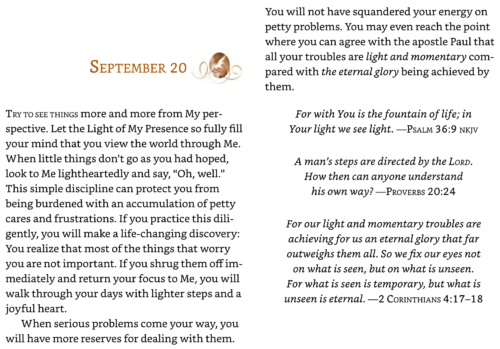Money and Soul
In this week’s meditations, we are delighted to share some of Fr. Richard Rohr’s unpublished notes about money. As a Franciscan dedicated to simple living and the Gospel call to solidarity with the marginalized, Richard sees an opportunity for each of us to rediscover a “soulful” relationship with money.
I’m convinced that money and soul are united on a deep level. This truth is reappearing from the deep stream of wisdom traditions after centuries of almost total splitting and separation at the conscious level. [1] There is un río profundo, a river beneath the river. The upper stream has always been money in all its forms, beginning with trading and bartering. The deeper stream is the spiritual meaning such exchanges must have for our lives. Money and soul have never been separate in our unconscious because they are both about human exchanges, and therefore, divine exchange, too.
Notice how much religion uses the language of commerce, such as gaining heaven, acquiring merit, doing penance, earning salvation, losing one’s soul, and deserving hell. Of course, there is also the notion of “penal substitutionary atonement” itself, with Jesus “paying the debt” for our sins. On the other side, commerce uses the metaphors of religion far more than it realizes: we purchase bonds and trusts, enter into covenants, forgive debts, are granted grace periods for repayment, enjoy indemnity, reconcile accounts, and redeem coupons!
From my perspective, when money and soul are separated, religion is the major loser. Without a vision of wholeness that puts money in its soulful place, religion “sells out.” Religion allowed itself to lose the only ground on which awe and transcendence stand—the foundation of totally gratuitous and “amazing grace.” We traded it for a “mess of pottage” (see Genesis 25:27–34), a secretly enthroned ego that only knows how to count, weigh, measure, dole out, judge, label, earn, expel, and compete. No wonder Jesus’ direct action in the Temple that exposed the idolatrous game got him killed within a week! All four Gospels in some form speak of “turning over the tables” of buying and selling. [2] Even with this forceful gospel teaching, our faith became transactional instead of transformational, calculating instead of consoling.
Lynne Twist, founder of the Soul of Money Institute, understands the impact that our culture’s disintegrated view of money has made and invites us to the spiritual practice of bringing the two—money and our souls—together in our lives:
In a world that seems to revolve around money, it is vital that we deepen our relationship with our soul and bring it to bear on our relationship with money. In that merger and that commitment, we can create a new and profound spiritual practice. We can have our money culture both balanced and nourished by soul. Our relationship with money can become a place where, day in and day out, we can engage in this meaningful spiritual practice. [3]
We Cannot Serve Two Masters
Fr. Richard continues his reflections on money by considering one of Jesus’ most challenging statements.
Many of us, myself included, have a confused, guilt-ridden, obsessive attitude about money. There’s hardly anybody who can think in a clear-headed way about it. At the end of Luke’s parable of the so-called dishonest steward, Jesus creates a clear dualism between God and wealth, or what he calls “mammon”: “You cannot serve God and mammon” (Luke 16:13). Mammon was the god of wealth, money, superficiality, and success. Jesus says, in effect, “You’ve finally got to make a choice.” Most of Jesus’ teaching is what I call nondual—a theme I often teach—but there are a few areas where he’s absolutely dualistic (either-or), and it’s usually anything having to do with power and anything having to do with money.
Jesus is absolute about money and power because he knows what we’re going to do. Most of us will serve this god called mammon. Luke’s Gospel even describes mammon as a type of illness, as Jesuit John Haughey (1930–2019) explained: “Mammon is not simply a neutral term in Luke. It is not simply money. It connotes disorder. . . . Mammon becomes then a source of disorder because people allow it to make a claim on them that only God can make.” [1] “Mammon illness” takes over when we think all of life is counting, weighing, measuring, and deserving. We go to places that have sales, so that we don’t have to give as much to get the same thing. My mother spent much of her time cutting coupons to save ten cents. It was good and even necessary for a while, I guess, but it’s very hard to get rid of that fixation.
To participate in the reign of God, we have to stop counting. We have to stop weighing, measuring, and deserving in order to let the flow of forgiveness and love flow through us. The love of God can’t be doled out by any process whatsoever. We can’t earn it. We can’t lose it. As long as we stay in this world of earning and losing, we’ll live in perpetual resentment, envy, or climbing.
Religion cannot work from a calculator without losing its very method, mind, foundation, and source. Surely this is what Jesus meant by his statement in Luke’s Gospel. Perhaps if we say it a bit differently, we can all get the point: “You cannot move around inside the world of Infinite Grace and Mercy, and at the same time be counting and measuring with your overly defensive and finite little mind.” It would be like asking an ant to map the galaxies. St. Thérèse of Lisieux (1873–1897) put it much more directly to a nun worried about God keeping track of her many failings: “There is a science about which [God] knows nothing—addition!” [2] The reign of God is a worldview of abundance. God lifts us up from a worldview of scarcity to infinity. Remember every part of infinity is still infinite! God’s love is nothing less than infinite.
